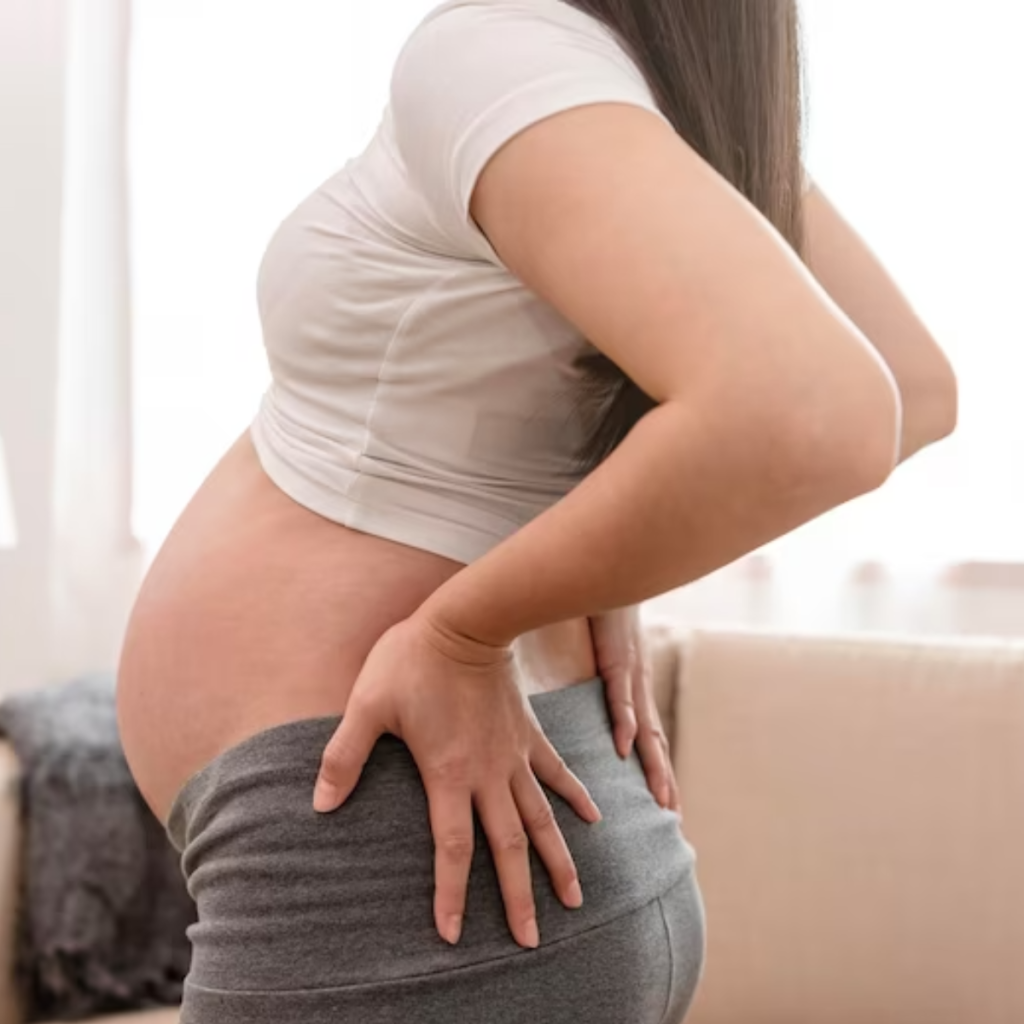Discover the duration of postpartum back pain and find effective remedies to alleviate discomfort.
How Long Does Postpartum Back Pain Last?
Postpartum back pain is a common concern for many new mothers. It can be both frustrating and uncomfortable, but the good news is that it is usually temporary. In this article, we will explore the duration of postpartum back pain, as well as factors that can influence its length and strategies for managing the pain. So, let’s dive in!

Understanding Postpartum Back Pain
Before we delve into the duration of postpartum back pain, let’s take a moment to understand what it is. During pregnancy, your body goes through numerous changes, and one of them is the loosening of ligaments and muscles in your back to accommodate your growing baby. Once you give birth, these ligaments and muscles take time to recover and regain their strength, which can lead to discomfort.
But what exactly happens to your back during pregnancy? Well, let’s break it down. As your baby grows, your uterus expands and shifts your center of gravity forward. This change in alignment puts additional stress on your back, especially the lower back. The increased weight and pressure can cause strain on the muscles and ligaments, leading to postpartum back pain.
The Anatomy of Postpartum Back Pain
Postpartum back pain can occur in various areas of your back. It may be localized to the lower back, or you may experience pain in the upper back, neck, or shoulders. The intensity of the pain can vary from mild to severe. It’s important to note that every woman’s experience with postpartum back pain is unique.
Let’s take a closer look at the different types of postpartum back pain. Lower back pain, also known as lumbar pain, is the most common type experienced by new moms. This pain can be a result of the strain on the muscles and ligaments in the lower back during pregnancy and childbirth. Upper back pain, on the other hand, may be caused by poor posture while breastfeeding or carrying your baby. The weight of your breasts and the constant bending forward can put stress on the upper back muscles.
Common Causes of Postpartum Back Pain
Several factors can contribute to postpartum back pain. One of the primary causes is the strain that occurs during labor and delivery. The pushing and exertion involved in giving birth can put a significant amount of pressure on your back, leading to muscle soreness and discomfort.
Additionally, the added weight gain during pregnancy can put excess stress on your back. As your baby grows, so does your belly, and this extra weight can strain your back muscles. The hormonal changes that take place during pregnancy can also contribute to back pain. The relaxation of your pelvic ligaments, which allows for the expansion of the birth canal, can affect the stability of your back and lead to discomfort.
Not to mention the countless hours spent carrying your precious little one, which can take a toll on your back. Let’s face it; babies have a knack for wanting to be held all the time! The constant lifting, bending, and carrying can put strain on your back muscles, especially if you’re not using proper lifting techniques.
It’s important to note that postpartum back pain is a common condition that affects many new moms. However, if the pain becomes severe or persists for an extended period, it’s essential to seek medical attention. Your healthcare provider can help determine the underlying cause of your back pain and recommend appropriate treatment options.
The Duration of Postpartum Back Pain
Now, let’s get to the big question: how long does postpartum back pain last? Well, it can vary from woman to woman and depends on a few key factors.
Postpartum back pain is a common concern for new mothers. The physical changes that occur during pregnancy and childbirth can put a strain on the back, leading to discomfort and pain. Understanding the duration of postpartum back pain can help women manage their expectations and seek appropriate treatment.
Immediate Postpartum Period
During the first few weeks after giving birth, it’s normal to experience back pain as your body adjusts to the physical changes. The sudden absence of the baby bump and the hormonal changes can contribute to this discomfort. Additionally, the strain placed on the back during labor and delivery can take some time to heal.
It is crucial to prioritize rest and recovery during this period. Taking time to rest and allowing your body to heal can significantly reduce postpartum back pain. Simple self-care practices such as gentle stretches, warm baths, and using supportive pillows can also provide relief.
Rest assured, most women find that their back pain starts to subside within a few weeks. However, it is essential to listen to your body and consult with a healthcare professional if the pain persists or worsens.
Long-term Postpartum Period
For some women, postpartum back pain may persist beyond the immediate postpartum period. This can be due to various factors such as the presence of an underlying condition, poor posture, or the demands of caring for a newborn.
However, the good news is that postpartum back pain tends to improve over time as your body heals and adjusts to the demands of motherhood. As your baby grows and becomes more independent, the physical strain on your back may decrease, leading to a reduction in pain.
By the time your little one celebrates their first birthday, you’ll likely be feeling much better. It is important to remember that every woman’s journey is unique, and the duration of postpartum back pain can vary. Patience, self-care, and seeking professional guidance if needed are key to managing and alleviating postpartum back pain.
Factors Influencing the Duration of Postpartum Back Pain
While most women experience relief from postpartum back pain within a reasonable timeframe, there are a few factors that can influence the duration.
Postpartum back pain, also known as postnatal back pain, is a common condition that affects many women after giving birth. It can range from mild discomfort to severe pain, and its duration can vary from woman to woman. Understanding the factors that influence the duration of postpartum back pain can help women manage their symptoms and promote faster healing.
Physical Factors
Your overall physical health and fitness level can play a role in how long you experience postpartum back pain. Pregnancy and childbirth can put a strain on your back muscles and ligaments, and if you were not physically active during pregnancy, it may take longer for your body to recover.
Engaging in gentle exercises and activities that promote core strength can help expedite your recovery and reduce the duration of the pain. Physical therapy exercises, such as pelvic tilts and gentle stretches, can help strengthen your back muscles and improve your posture, providing relief from back pain.
In addition to exercise, maintaining a healthy weight can also contribute to faster healing. Excess weight puts additional stress on your back, making it harder for your body to recover. Eating a balanced diet and staying hydrated can support your body’s healing process and reduce the duration of postpartum back pain.

Psychological Factors
Let’s not forget about the power of the mind! Research shows that stress and anxiety can contribute to physical discomfort, including back pain. The hormonal changes that occur during pregnancy and postpartum can affect your emotional well-being, and if left unmanaged, they can prolong your recovery.
Taking care of your mental health is just as important as tending to your physical well-being. Finding ways to relax and unwind can help speed up the healing process. Engaging in activities that bring you joy and reduce stress, such as meditation, yoga, or spending time in nature, can have a positive impact on your overall well-being and help alleviate postpartum back pain.
It is also essential to seek support from your loved ones and healthcare professionals. Talking about your feelings and concerns can provide emotional relief and help you navigate the challenges of postpartum recovery. Remember, you are not alone in this journey, and there are resources available to support you.
In conclusion, the duration of postpartum back pain can be influenced by various factors, including physical health, fitness level, and psychological well-being. By taking care of your body and mind, you can promote faster healing and reduce the discomfort associated with postpartum back pain. Remember to consult with your healthcare provider for personalized advice and guidance.
Managing Postpartum Back Pain
Experiencing back pain after giving birth is a common occurrence for many women. While waiting for your back pain to subside, there are several strategies you can employ to manage the discomfort and promote healing.
One of the most effective ways to manage postpartum back pain is to practice good posture. Maintaining proper alignment while sitting, standing, and lifting can help alleviate strain on your back muscles. Additionally, using supportive pillows while breastfeeding or sleeping can provide extra comfort and support.
If your back pain is severe or persistent, consulting with your healthcare provider is always a wise move. They can recommend appropriate medical treatments to address your specific needs. Physical therapy is often recommended as it can help strengthen the muscles in your back and improve flexibility. Chiropractic care may also be beneficial, as it focuses on aligning the spine and relieving pressure on the nerves. In some cases, your healthcare provider may suggest pain management techniques, such as medication or injections, to help alleviate your discomfort.
For those looking for natural alternatives, there are plenty of remedies you can try to alleviate postpartum back pain. Applying heat or cold packs to the affected area can provide temporary relief by reducing inflammation and soothing sore muscles. It is important to note that heat therapy is generally recommended for muscle relaxation, while cold therapy is often used to reduce swelling. Incorporating gentle stretches and exercises into your routine can also help alleviate back pain. Engaging in activities such as yoga or Pilates can help strengthen your core muscles and improve your overall posture.
In addition to these remedies, it is crucial to prioritize self-care and rest. Taking breaks throughout the day to rest and relax can help reduce muscle tension and promote healing. It is also important to listen to your body and avoid activities that exacerbate your pain. Remember, every woman’s experience with postpartum back pain is unique, so it is essential to find the strategies that work best for you.
When to Seek Medical Help
While postpartum back pain is common, there are instances where seeking medical help is essential.
Recognizing Serious Symptoms
If you experience severe or worsening pain, numbness or tingling in your legs, difficulty walking, or loss of bowel or bladder control, it’s crucial to consult with your healthcare provider promptly. These symptoms may indicate a more serious underlying issue that requires medical attention.
Importance of Regular Check-ups
Remember, regular check-ups with your healthcare provider are crucial during the postpartum period. They can monitor your progress, address any concerns, and provide personalized guidance. Your health and well-being are their top priority!
In conclusion, postpartum back pain is a temporary hurdle that many new mothers face. While the exact duration can vary, most women find relief within a few weeks to months after giving birth. By taking care of your physical and mental health and seeking appropriate medical care when needed, you can navigate the journey to a pain-free back with confidence. So, take a deep breath, mama, and give yourself the love and care you deserve!



